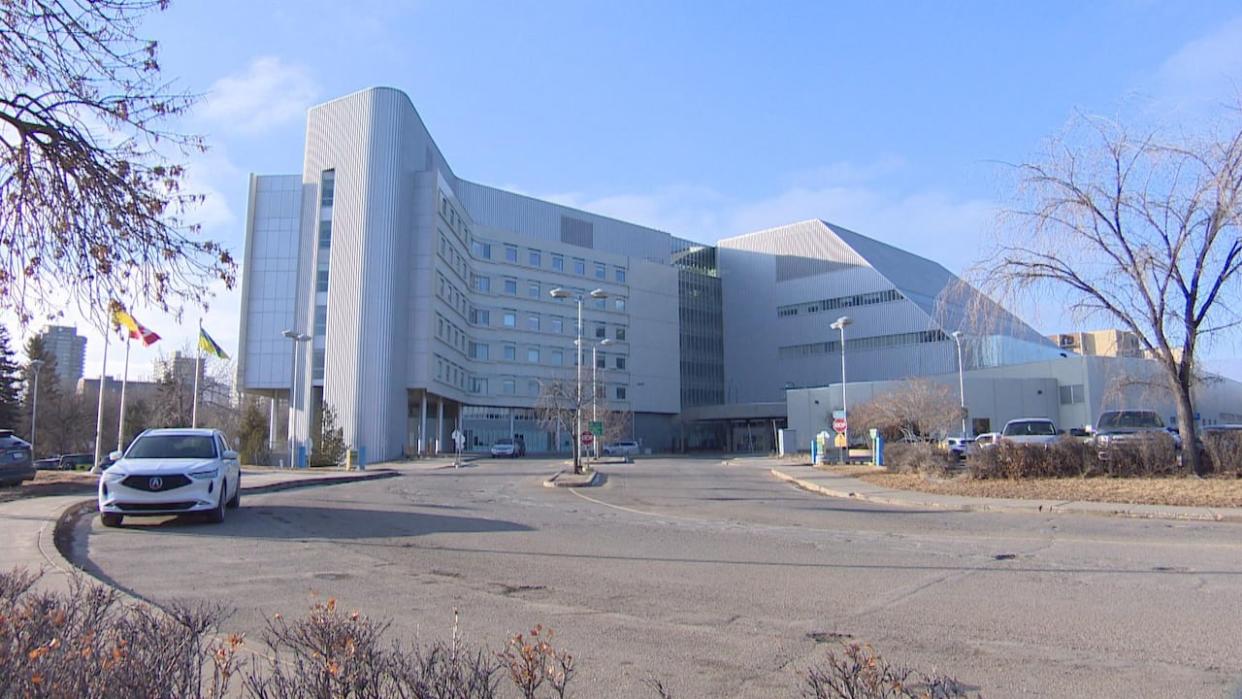New health-care software system 'still rife with error,' says nurses' union head

A long-awaited payroll and scheduling software rollout for health-care workers has not gone smoothly, according to the Saskatchewan Union of Nurses.
But 3S Health, which administers payroll for the province's health system, says the launch has been a "success overall."
In 2022, the Saskatchewan Health Authority (SHA) rolled out its new software for health-care workers — titled Administrative Information Management System (AIMS) — but after a few days it had to "hit the abort button" according to nurses' union president Tracy Zambory.
Now, AIMS is being phased in in stages, with last Friday's payroll being the first one in the new system.
"We heard very quickly from members a myriad of problems that were happening: people not being paid properly, it being very onerous to try to check to see if banks were being properly taken care of," said Zambory.
She said the "onerous" system puts a strain on nurses who are already struggling and, in some cases, nurses were paid incorrectly or received no payment.
"When we're in a nursing shortage, why would we put up barriers [for] a registered nurse now? Where are they supposed to have time to figure out their pay that could take a good two hours?" she said.
Issues being addressed: 3S Health
Mark Anderson is the CEO at 3S Health, which provides payroll and scheduling and other services for the Saskatchewan health system. In a statement provided to CBC, he said that a "small number of employees" didn't receive their expected bank deposit during the first payroll run in AIMS on July 5.
"The number of employees affected by this is less than one per cent, which is the same as the pre-AIMS rate," he said. "These issues are being addressed. All staff are being paid. Minor pay corrections are being addressed promptly for the next pay run."
Staff will be using AIMS in its entirety in 2025, Anderson said. In the days since its launch, it has been used for inventory, expense reports, invoices and payroll.
"The launch has been a success overall," Anderson said.
Zambory said the union repeatedly asked SHA to wait and make sure the software is all-systems-go by the time it reached membership.
"The message we got back is, 'No, they're there now, don't worry, we'll try to figure it out,' and they launched forward mostly because they've got hundreds of millions of dollars invested in a system that's onerous, cumbersome, still rife with error, and here we find ourselves today."
According to the province's auditor, as of March 2023, the Health Ministry and SHA forecast the costs of the AIMS project to be almost $240 million."
SHA did not immediately respond to a request for comment.
Software rollout complexities
Andrew Taylor is a manager of an applications engineering team at Siemens — a multinational tech company in Saskatoon — and his expertise is in working with large enterprise customers to train and develop software.
He said the software rollout that he would do at Siemens differs from that of AIMS, but said there are similarities in large-scale software rollouts.
"We're a heavily support-focused group at Siemens, so our job is to make sure our customers are successful, and so I can get definitely empathize with the end users of this when they get thrown for a loop and they say, 'Here's this new software and you have to use it,' and maybe there could be a bunch of hiccups," said Taylor.
Taylor said it's hard to pinpoint what the hiccups are without talking to the users, but that training is an important factor when rolling out new software.
"It's not just a single, you know, do a presentation, here's how you click these buttons, but building a relationship with those users."


